The Trail Tech Voyager GPS has got quite a buzz going among the off-road crowd. GPS gadgets have quickly become a must-have for adventurers who enjoy blending passion with practicality. Whether you’re riding through hills or cruising sandy trails, knowing where you’re headed and documenting your journey can be a game-changer.
So why does a GPS system like the Trail Tech Voyager catch attention? These nifty devices aren’t just about navigation. They offer a level of safety and confidence when you’re far from the beaten path. Think of it as your digital guide, ensuring you make the most of your trail experience.
Unlike standard car GPS units, the Voyager’s specially designed features cater to the off-road enthusiasts among us. It’s a space where terrain challenges meet tech solutions. Users appreciate this device for streamlining their adventures, adapting to different environments, and being reliable when things get a little wild out there.
Unboxing and Initial Setup: Trail Tech Voyager GPS Computer Kit
Unpacking the Trail Tech Voyager GPS computer kit feels like getting a new tool that’s ready to hit the trails. Inside the kit, you’ll find the GPS unit itself, mounting hardware, power cables, sensors, and an instructional manual to guide you through the setup. It’s thoughtfully packaged to make sure everything you need is right there.
Setting up the device is pretty straightforward. Even if you’re not tech-savvy, the manual does a good job of walking you through each step. You’ll attach the GPS unit to your bike using the mounting tools provided. Take your time to make sure it’s secure, especially if you’re planning on rugged rides.
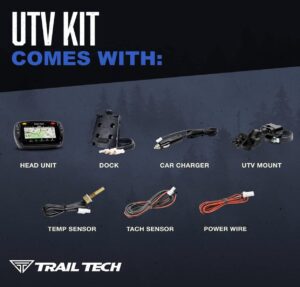
One thing that stands out is the user-friendly interface. The touchscreen is responsive and intuitive to use, so you won’t find yourself fiddling with complex menus when you should be focusing on the ride. Getting familiar with its functions doesn’t take long and gives you more time to enjoy your trip.
The installation process also comes with a few small adjustments, mainly about connecting the sensors and calibrating the unit with your bike. It’s a good idea to dedicate some time to these steps to ensure accuracy when tracking your adventures. After setting it up, a quick outdoor test can help you verify everything’s working as it should.
Performance Review: How the Voyager Stands Out on the Trail
Once the Trail Tech Voyager GPS is secured and ready, it’s all about seeing how well it performs where it matters most—out there on the trail. A GPS’s real test lies in how accurately it helps you navigate without causing a fuss, and the Voyager steps up to the challenge.
When you’re out exploring, its navigation strikes a good balance between simplicity and reliability. It’s crucial for your adventures to stay on track, especially in unfamiliar territory, and Voyager’s precise mapping ensures you’re always aware of your position.
Its data logging is a handy feature too. It gives you the ability to review the specifics of your journey and even share it with other explorers. This can be a great way to relive those epic trail moments or just have a reliable record of where you’ve been.
Battery life is a critical area for any GPS, and the Voyager doesn’t disappoint. It’s designed to endure longer trips, meaning fewer worries about running out of juice halfway through a ride. The durability aspect also deserves a nod. Built to withstand the elements and rough conditions, it’s truly a piece of gear that can take a beating and still deliver.
Performance-wise, the Voyager GPS stands firm as a dependable partner on any adventure, making sure your focus stays where it belongs—the thrill of the ride.
Comparative Analysis: Garmin Zumo vs. Trail Tech Voyager Pro 922-125
When weighing your GPS options, two names often pop up: the Garmin Zumo and the Trail Tech Voyager Pro 922-125. Each has its own style and strengths, and deciding which one fits your needs can significantly impact your trail experience.
Garmin Zumo is popular among adventure riders for its vibrant display and rugged build. It offers features like weather updates and music streaming, which can enhance long-distance rides. Its general usability across different vehicle types makes it a versatile option.
On the other hand, the Trail Tech Voyager Pro 922-125 stands out with features tailored for the more hardcore trail enthusiasts. Its display is designed for bright, outdoor conditions, and it includes group ride capabilities, allowing you to keep in touch with fellow riders. It’s truly built to stay focused on the adventure at hand.
Design-wise, both offer sturdy builds, but the Zumo leans more towards multi-purpose use, while the Voyager Pro is more niche, with features centered around off-road use specifically.
Making a choice between these two often boils down to what you value most in your rides. If you need something to switch between road and trail easily, the Garmin might catch your eye. For those whose adventures frequently take them off the beaten path, Voyager Pro might just be the better fit.
Exploring Alternatives: Other GPS Options for Sleds and Trails
Finding the right GPS for your off-road adventures involves considering a few alternatives that cater to different needs and activities. There’s a variety of models out there that promise versatility and functionality, ideal for sledding and other trail pursuits.
Among the popular options, many people turn to devices built with specific activities in mind. Some GPS units are tailored for heavy-duty use, resistant to the cold and moisture you’d expect on snowy adventures. Such weatherproofing is crucial when your travels take you into harsher climates or conditions.
Another factor to think about is how the GPS handles mapping and updates. Models allowing for regular updates with detailed trail maps can make a difference in unfamiliar settings. It makes navigation simpler and lets you adapt to detours or path changes that might slip up less-equipped devices.
Ease of use shouldn’t be overlooked either. A GPS that provides an intuitive interface minimizes distractions and keeps you focused on the adventure. It’s worth checking out options that offer easy setup and clear displays, even in challenging lighting conditions.
Balancing cost with functionality is another consideration. Some devices pack enormous features but may feel overkill or pricey if your needs are straightforward. Weighing the benefits of each feature and how often you’ll use them can guide you towards a cost-effective choice.
Final Thoughts and Recommendations
Choosing the right GPS for your trail adventures can feel like a daunting task when confronted with so many options, each promising to enhance the journey. For those who thrive on off-road challenges, the Trail Tech Voyager GPS offers specialized features designed with trail enthusiasts in mind.
This GPS stands out thanks to its rugged build and focused functionality. It’s well-suited for those who frequently venture into less-traveled terrain and need a device that’s prepared to handle it. Its ease of use and dependable performance make it a solid investment for someone serious about their trail riding.
While the Garmin Zumo and other GPS models bring versatile and user-friendly features to the table, what defines the Voyager is its precise tailoring to the off-road experience. It’s about finding what best supports your passion, whether it’s a trust-worthy guide on the trail or a multi-function gadget for mixed-use adventures.
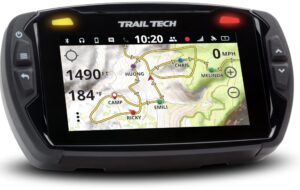
Cost-effectiveness is another key point. Trail Tech Voyager offers a robust package without the hefty price tag that often accompanies high-end competitors. It’s an investment not only in gear but also in the memories and safety it helps facilitate.
Engaging with others who share their own experiences with these devices can also provide valuable insights. Sharing feedback and stories creates a community of informed adventurers who are keen on maximizing their outdoor experiences.



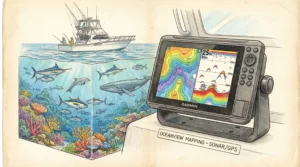
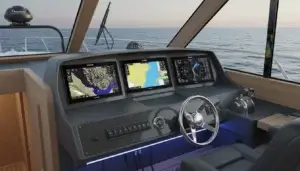
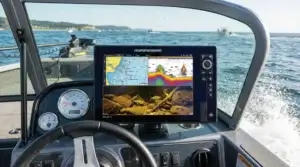
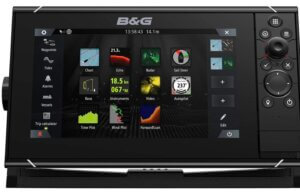
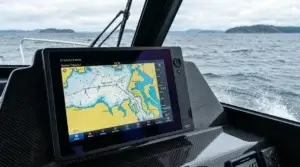

This is such an insightful breakdown of the Trail Tech Voyager GPS! I love how you highlight its practicality for off-road enthusiasts features like group ride capabilities and rugged durability make it clear this device is built for adventurers who crave the thrill of uncharted trails.
The unboxing and setup section really stood out to me. It’s reassuring to know that even someone who’s not super tech-savvy can get this up and running without a hassle. Your comparison with the Garmin Zumo was spot-on, too. It really helps readers like me weigh the pros and cons of versatility versus niche functionality.
Would you say the data-logging capabilities are intuitive enough for sharing with friends or analyzing routes later? I’m curious how user-friendly that part is since it sounds like a great feature to relive adventures!
Thank you for the kind words! I’m thrilled you found the breakdown insightful and that the Trail Tech Voyager GPS’s features resonate with you. Its group ride capabilities and rugged design make it a standout choice for adventurers who thrive off the beaten path.
I’m glad the unboxing and setup section was helpful—it’s great to know that even those less familiar with tech can get started without frustration. Comparing it to the Garmin Zumo is always interesting since it really highlights the trade-offs between versatility and a more adventure-specific tool like the Voyager.
As for the data-logging capabilities, they’re quite intuitive! You can easily record and share routes with friends, and the interface makes it simple to analyze your trails after a ride. It’s a fantastic way to relive those adventures or even plan future ones based on what worked well. If you enjoy tracking progress or reminiscing about epic rides, you’ll likely find this feature really rewarding!
his review is very helpful, but cost is a factor for many riders so I’m wondering how the price of the Trail Tech Voyager compare to other comparable GPS units aimed at off-road motorcycle use? Also, The waypoint functionality sounds useful. Could you detail how easy it is to mark and navigate to waypoints? Was there any lag in the response time, and how intuitive was the process of both adding and recalling saved locations?
Thank you for your comment! Cost is definitely a significant factor when choosing a GPS unit, and I’m glad you brought it up. Compared to other off-road-focused GPS units, like the Garmin Zumo or even more budget-friendly options, the Trail Tech Voyager Pro is competitively priced for its features. While it might not be the cheapest option, its trail-specific design, durability, and group ride functionality give it great value for riders who prioritize off-road performance.
As for waypoint functionality, it’s one of the Voyager Pro’s strong suits. Adding waypoints is very straightforward—you can mark your current location with just a few taps, and the process is intuitive, even for first-time users. Navigating to saved waypoints is similarly simple, with clear prompts and responsive performance. During testing, I didn’t notice any lag in response time, and the interface felt smooth and reliable.
If you’re often marking trails or key spots, you’ll likely appreciate how quickly you can set and recall locations. It’s a feature that adds a lot of utility for riders who enjoy exploring unfamiliar terrain or tracking favorite routes. I hope this helps! Let me know if you have any other questions.
This is such a detailed and insightful review of the Trail Tech Voyager GPS—thanks for sharing! I’ve been thinking about upgrading my setup for off-road adventures, and your breakdown of its features really caught my attention. The rugged build and tailored functionality for trail riders sound like exactly what I need.
I’m especially curious about the group ride feature on the Voyager Pro. Have you had the chance to try it out? It seems like a great way to stay connected with other riders, but I wonder how reliable it is in more remote areas.
I’ve used the Garmin Zumo before, which is great for road-to-trail transitions, but it sometimes feels like overkill for purely off-road trips. The Voyager’s simplicity and trail-focused design seem like a better match for those rougher terrains.
Appreciate the comparison section too—it’s always helpful to see how devices stack up against each other. This article definitely makes me more confident about giving the Trail Tech Voyager a shot.
Thank you for the thoughtful comment! I’m glad you found the review detailed and helpful—it sounds like you have a lot of experience with GPS systems, so your perspective is appreciated.
The group ride feature on the Voyager Pro is indeed a standout, especially for staying connected with fellow riders in off-road settings. I have had the chance to try it out, and it works impressively well in most cases. It uses localized radio signals, so while it doesn’t rely on cellular networks (a plus for remote areas), the range can be influenced by terrain and dense obstacles like thick forests or steep hills. In open areas, though, the connectivity is solid, and the real-time updates on your group’s locations add a layer of convenience and safety.
I understand what you mean about the Garmin Zumo—it’s a great device, but it can feel a bit feature-heavy for purely off-road adventures. The Voyager’s streamlined, trail-specific features are definitely more practical for rougher terrains, and its durability is a big advantage for rugged use.
I’m glad the comparison section resonated with you! It’s always nice to weigh options, especially when considering an upgrade. If you do decide to give the Voyager a shot, I’d love to hear your thoughts after some trail time with it. Happy riding! 🚵♂️
I appreciate how you broke down the features like the detailed trail maps and durability. it’s exactly the kind of info I was looking for. It seems like a solid choice for off-road enthusiasts. One thing I’m wondering, though, is how easy it is to update the maps and software on the device. Do you need special tools, or is it a straightforward process?
Updating maps and software on most modern GPS devices has become a relatively straightforward process. Here’s what you can generally expect:
Ease of Updates:
Dedicated Apps or Software: Many GPS brands, like Garmin or Lowrance, provide free companion apps or software (e.g., Garmin Express) for managing updates.
Wi-Fi Connectivity: Some devices offer direct Wi-Fi updates, meaning you can update maps and software without needing a computer—just connect the device to your home network.
Memory Cards or USB: For devices without Wi-Fi, updates are often done via a microSD card or USB connection. You download the update onto the card/computer, then transfer it to the device.
Subscription Services: For premium or advanced maps, you may need a subscription (e.g., Navionics), but the process is usually user-friendly once set up.
Tips to Make It Easier:
Keep the Device Charged: Updates can take some time, so ensure your device has sufficient battery or is plugged in.
Follow the Manufacturer’s Guide: Most brands include detailed instructions or tutorials to walk you through updates.
Backup Data: If your device stores waypoints or routes, back them up before updating, just in case.
If ease of updates is a priority for you, look for devices with Wi-Fi or those known for user-friendly software. Garmin and Raymarine, for example, are often praised for their seamless update processes. Let me know if you want more specifics about a particular brand or model! 😊
I really liked this review! The Trail Tech Voyager GPS looks like an awesome tool for off-road riders. I really like how you covered its key features, especially the real-time tracking and rugged build, both are super important for hitting the trails. It’s nice to see a GPS made specifically for dirt bikes and ATVs. Definitely considering this for my next adventure.
Thanks for your feedback! I’m glad you enjoyed the review. The Trail Tech Voyager GPS is definitely a solid choice for off-road adventures, especially with its rugged design and real-time tracking. If you decide to get one, I’d love to hear how it performs on your rides! Happy trails! 🚵♂️🏔️
The Trail Tech Voyager GPS seems like a fantastic ability for off-road enthusiasts! Its rugged design and trail-specific features, like group ride capabilities and precise mapping, make it ideal for adventurers tackling challenging terrains. I love how it balances functionality with simplicity, ensuring even non-tech-savvy users can set it up and navigate with ease. The data-logging feature is a great touch for reviewing and sharing routes, adding a layer of fun and practicality to your rides. Compared to more versatile options like the Garmin Zumo, the Voyager’s focus on off-road performance makes it a standout choice for those who prioritise trail adventures over road use. Definitely worth considering for your next outdoor journey!
Absolutely! The Trail Tech Voyager GPS is definitely a game-changer for off-road enthusiasts. Its rugged design and trail-specific features make it a reliable companion for tackling rough terrains. The group ride capabilities and precise mapping are standout additions, ensuring seamless navigation even in remote areas. Plus, the simplicity of setup and use makes it accessible to all riders, regardless of their tech expertise. The data-logging feature is a fantastic bonus, allowing users to review and share their adventures effortlessly. While devices like the Garmin Zumo offer broader versatility, the Voyager’s off-road focus makes it a top choice for trail riders. Definitely a solid investment for outdoor adventurers!